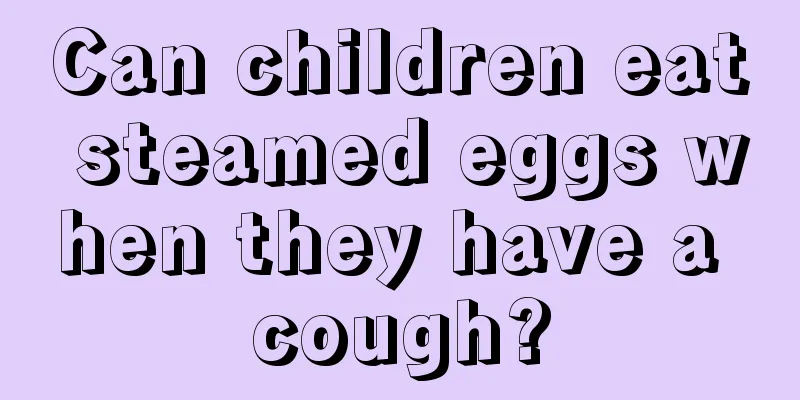Infants with delayed swallowing function

|
In the eyes of many parents, children's ability to chew and swallow is innate. They certainly won't be able to do it at the beginning, but as time goes by, they will be able to eat naturally and there is nothing special to pay attention to. In fact, if a child's body shows signs of developmental delay, it may include delayed swallowing function, which in turn affects the child's related functions. So, what should we do if our baby has delayed swallowing function? Parents should gradually add some complementary foods to their babies when the baby is about four months old. If parents do not train the baby's swallowing and chewing ability, and do not provide complementary foods at different stages, when the baby grows up, the child may not have a good ability to chew food. He will not be able to chew coarser or harder food, which may result in unbalanced nutrition for the baby, picky about food, difficulty swallowing and other consequences. When the baby is about seven months old, he starts to grow teeth. At this stage, the baby's chewing ability will be better than before. He will slowly use his gums to imitate the movement of chewing food up and down. At the same time, he will have the desire to eat actively. Sometimes when he sees people around him eating, the baby will also want to try it. At this time, parents can provide the baby with more types of complementary foods to cultivate the child's chewing ability. You can prepare some softer noodles, porridge, bread slices, fruit bars and other semi-liquid or semi-solid foods for your baby; when the baby is ten to twelve months old, he has grown 4 to 6 teeth, and his chewing ability and oral movements will be more coordinated. At this time, he will try to crush or bite off the food first, and then slowly perform simple chewing movements. During this period, whether the child can chew food better will also affect the development of teeth. At this time, the baby's complementary food will also change. At this time, the complementary food should be mainly semi-solid or solid food, such as: vegetable porridge, steamed eggs, noodles, etc.; when the baby is about one year old, he can slowly eat adult food, and will become more and more adept at using his teeth. During this period, the baby's imitation ability is strong. Parents may wish to do some demonstration movements, teach the child to chew the food more fragmented, so that he can eat the main meal smoothly, provide the baby with some long fruits or slightly harder biscuits to let him get used to solid food.When the baby is about one and a half years old, you can provide him with the same food as adults. It is best to let the baby learn to eat by himself. You can provide the baby with some toys that train or stimulate oral movements, such as whistles, which is conducive to the baby's language development. Parents should pay attention to their baby's growth and development, but not too much. Do the right things at the right time to provide the baby with a healthy and pleasant growth environment. |
<<: 46-day baby development indicators
>>: When does the baby's stomach develop?
Recommend
How to care for baby's mouth eczema
After many babies are born, their parents find th...
How to deal with children's ears full of earwax?
Children's earwax also needs to be cleaned re...
What causes diarrhea in babies in summer?
Due to the hot weather in summer, gastrointestina...
Symptoms of cerebral hypoxia in children
Everyone must be familiar with the term cerebral ...
Why does the baby cry in the middle of the night?
Generally speaking, most babies will cry in the s...
Can honeysuckle water treat baby eczema?
After some babies get eczema, many parents don’t ...
What to do if your child has cracking joints
There will be friction between our joints when we...
What are the baby's developmental indicators at two months?
In fact, people who have just become parents prob...
What causes children's morning cough?
Coughing is a normal reaction of our body. Althou...
One and a half year old baby has blisters in his mouth
Many children are prone to getting angry and oral...
Symptoms of indigestion in full-month-old babies
Indigestion is the most common disease among babi...
Why does my child always complain about foot pain?
Foot pain in children is a common problem for man...
Summer fever in children
We all know that when summer comes, there are the...
Your baby's back muscle tension is high, know the symptoms first
Parents of their babies are extremely concerned a...
Why does a child have phlegm in his throat without coughing?
If a child does not cough but has phlegm in his t...









